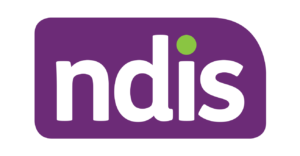Written by Emily Unity as part of the DREAM Employment Network.
Q1. What did your employer do that made you feel supported?
In my first job, I, unfortunately, experienced a lack of support as a disabled person. I believe that this came from their lack of awareness, not necessarily a place of malice. However, it created a work environment that was not accessible or inclusive to me. Reflecting on that experience, there were several ways in which my employer fell short of providing the necessary support.
Communication gaps
My employer did not establish clear lines of communication or make an effort to understand my specific needs and challenges. There was a lack of open dialogue, which made it difficult for me to express myself or seek assistance when needed. This lack of support affected my overall job performance and well-being.
Sensory-unfriendly environment
The physical workspace was not designed with accessibility in mind. There were barriers that made it challenging for me to navigate, such as very bright lights and noise, insufficient signage, and lack of sensory-friendly areas. These barriers hindered my ability to fully engage and contribute to the workplace.
Lack of accommodation
The physical workspace was not designed with accessibility in mind. There were barriers that made it challenging for me to navigate, such as very bright lights and noise, insufficient signage, and lack of sensory-friendly areas. These barriers hindered my ability to fully engage and contribute to the workplace.
Q2. What could your employer have done better?
Reflecting on my first job experience, there are several areas where my employer could have improved their support for me as a disabled person.
Accessibility and sensory considerations
My employer could have been more proactive in ensuring the workplace was accessible in terms of environment and tasks. This might have included the consideration of providing quiet spaces or noise-cancelling headphones to help manage sensory overload. They could have also allowed for flexibility in lighting, temperature, or even working hours to help accommodate individual needs.
Training and awareness
My employer could have been more proactive in ensuring the workplace was accessible in terms of environment and tasks. This might have included the consideration of providing quiet spaces or noise-cancelling headphones to help manage sensory overload. They could have also allowed for flexibility in lighting, temperature, or even working hours to help accommodate individual needs.
Representation in the workplace
My employer could have also been proactive in ensuring that there were more disabled people like me in the workplace. If there were more people like me, we would have had the opportunity o help that the workplace is inclusive of different experiences and disabilities.
Q3. Would you do anything differently?
If I had the opportunity to go back to my first job, knowing what I know now, there are a few things I would do differently.
Self-advocacy
I would be more proactive in advocating for my needs and communicating my challenges to my employer. Sharing my experiences, strengths, and limitations would have allowed my employer to better understand how to support me effectively.
Seeking guidance and resources
I would have sought out resources and support networks specific to my disability. Connecting with organisations, communities, or mentors who have experience with autism in the workplace could have provided valuable advice and insights to navigate the challenges I faced.
Researching potential employers
In hindsight, I would conduct more thorough research on potential employers to gauge their commitment to disability inclusion. This would involve exploring their policies, programs, and employee experiences to determine if they prioritise creating an inclusive work environment.
Q4. What did you wish you knew more about?
In my first job, there were several areas where I wish I had more knowledge or understanding. Some of these include:
Workplace rights and accommodations
I wish I had been better informed about my rights as an employee with a disability. Understanding advocacy support services, legal protections, and accommodations available to me would have empowered me to advocate for myself more effectively.
Self-care strategies
It would have been beneficial to have more knowledge about self-care strategies and techniques to manage stress and sensory overload in the workplace. This could include mindfulness exercises, sensory regulation techniques, or stress management approaches.
Available Resources and Support Networks
I wish I had known about the various resources and support networks available to individuals with disabilities in the workplace. This could include disability-specific organisations, mentoring programs, or online communities where I could have sought guidance and support. Feeling isolated and alone exacerbated my experiences and I wish I had peers to share my experiences with and potentially explore solutions together.

About the author:
Emily Unity is a lived and living experience professional who currently works with UNICEF, Headspace, Beyond Blue, CYDA, Orygen, VMIAC, CMY, and more. Emily grounds their work in their intersectional experiences of mental health, disability, LGBTQIA+, homelessness, neurodiversity, and being a young carer from a refugee and migrant background.







